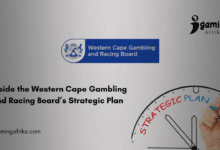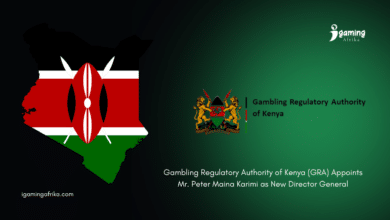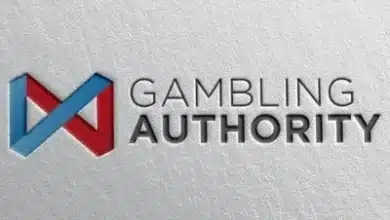Exclusive: The Role of Self-Exclusion in Managing Problem Gambling with Tayo Atoloye

Self-exclusion represents a cornerstone of modern responsible gambling tools that can be employed by individuals to manage their gambling behavior. It is described as the individual commitment to be denied gambling privileges and, occasionally, to be removed from marketing activities on promotional material distribution lists. Tayo Atoloye, Senior Business Development Manager – MTS at Sportradar, delves into this very exciting topic.
Self-exclusion emerges as a modern manifestation of old gambling bans in history and typically takes the form of an individual agreement between a gambler and a gambling operator. Over indebtedness, breakdown of social relationships, and the violation of social norms resulting from excessive gambling can lead to severe personal, mental, emotional and public health burdens.
The concerns of public health perspectives with harm prevention extend beyond concerns with the excess of gambling and include dismay over the negative effects of gambling. From a regulatory viewpoint, the implementation of self-exclusion can be achieved either through a formal regulatory decision or as a voluntary commitment by both or either of a gambling individual and the gambling operator. The former finds an increasing number of states legislating the application of self exclusion in their gambling laws. Those regulatory provisions frequently contain mandatory and time-limited exclusion (6 to 12 months) and may or may not permit the gambler to visit the gambling arenas during the effective period of their expulsion.
Challenges of Self-Exclusion Measures
Self-exclusion from gambling has been highlighted as a viable and potentially promising responsible gambling intervention strategy. Despite its benefits as a gambling harm minimization tool, several challenges have been raised. Some of the challenges are:
• Foremost, problem gamblers are able to find ways around their exclusions by utilizing different identities, online gambling accounts, electronic devices, and visitation of different retail shops. This not only circumvents the purpose of exclusion but also results in feelings of shame regarding their conduct. In the context of gambling, exclusions have been associated with positive outcomes for those who choose to engage with these measures.
• Despite the apparent promise of self-exclusion, it might be inferred that such tools are not able to solve problem gambling and that at most they may only assist in providing solutions for a subpopulation of individuals. This consideration is particularly pertinent due to the challenges associated with such tools and the fact that there is no way to know about those who have attempted or been successful with self-exclusion without counselling or other assistance. As such, it becomes paramount that such measures should be evaluated for real-world effects and impacts on those experiencing problem gambling.
• There is the inherent challenge associated with the fact that any individual can make multiple betting accounts, some of which may not require formal identification until a later stage of the punter’s journey on the platform, and in a laxer way, the punter could visit numerous retail outlets where no serious form of validation is required, and this encourages anonymous gambling.
• An excluded punter can even send a minor or peer to the betting shop to bet on his behalf with a shared or generated betting code. As such, some self-excluders may continue to gamble despite the presence of the exclusion.
Also, to access a self-exclusion program, a gambler needs to be aware of their irrational or problematic behavior and then be motivated to seek the required resources to address it. This is a significant challenge in terms of helping disordered gamblers seeking help for their gambling behavior.
• Although there is no substantial empirical evidence, limited subjective evidence suggests that many individuals have no idea that self-exclusion measures exist. To engage in such actions, it is likely that a gambler first needs to possess knowledge about responsible gambling and have some understanding of disordered gambling. On the part of the operators, self-exclusion is a substantial administrative burden for many operators particularly at the retail level. Issues in relation to the re-identification of participants suggest that any long-term exclusion registers were effectively redundant or non-existent.
Implementation and Effectiveness of Self-Exclusion Programs
As a formal practice that gives individuals the opportunity to voluntarily restrict their access to gambling products or services on the premise that they are or may become problem gamblers, its implementation lends even more credibility to the industry’s insistence that it is primarily concerned with responsible play, as distinct from the maintenance of sportsbooks and venues or the attraction of rapid and easy returns.
The availability of the service benefits problem gambling treatment and prevention agencies if taken seriously by all stakeholders. Following on from this, the self-exclusion agreement represents a concrete ethical and care obligation for gambling operators and the agreement affords gamblers some protection and support, and importantly offers the industry an opportunity to fulfil the obligation upon which it has become so insistent.
Self-exclusion can be implemented in a number of ways, or in concert. At the outset, it is important to be clear about some definitions and the different ways in which exclusion can occur:
Read Also: Digitain Partners with Gamingtec to Expand Presence in Europe
• Online self-exclusion is possible for customers who may be concerned about their gambling online and appearing in person to seek exclusion from a venue is another proposition.
• Identifying a punter with a gambling problem at the retail level is another problem entirely. There are important differences between these groups of intervention, and the distinction between African and international, face-to face and online gambling is also a significant one.
The significance is not only that treatment agencies may need to be prepared to respond, but that there may also be limits as well as opportunities offered within these differing contexts. The range of prevalence figures is therefore less important than the potential availability of an exclusion system itself, as a means to help responsible players when gambling trips up, or even as a proxy against which to judge industry commitment to responsible gambling.
Concerning the legality of gambling in Africa, there are three broad regulatory frameworks adopted across the continent relating to their approach to manage activity, which varies between prohibitive, restrictive, and liberal legislations. Fundamentally, the approach governments and regulatory bodies take in governing gambling within their jurisdiction is influenced by the prevailing societal viewpoints. While gambling has been classed as a luxurious pastime in most parts of the globe, including Africa, it has become far more accessible for citizens as countries expand their service offerings as an economic driver (internet and smartphone penetration) to attract tourism and contribute to socioeconomic development through direct and indirect earnings, and most importantly as a channel for tax revenue. However, with most countries in Africa classed as being within the developing world, a significant percentage of the population is estimated to be living below the poverty line and for this group of people, gambling remains the opium of the masses.
The implementation of self-exclusion programs across Africa is still in its early stages, and awareness of such opportunities for problem gamblers does not yet reach many ears. One may speculate that a lack of resources dedicated to information campaigns aimed at not only the addicted individual but also at the punter population may be partly responsible and very inadequate. Enforcement issues distinguish several countries with self-exclusion programs. It is in vain to voluntarily close the door on gambling venues when there is no legal enforcement plan to prevent players from playing despite their self-imposed exclusion. The implementation of self-exclusion options is an interesting and promising development for Africa, as indeed it is in other parts of the world.
Read the full article in our digital magazine:























